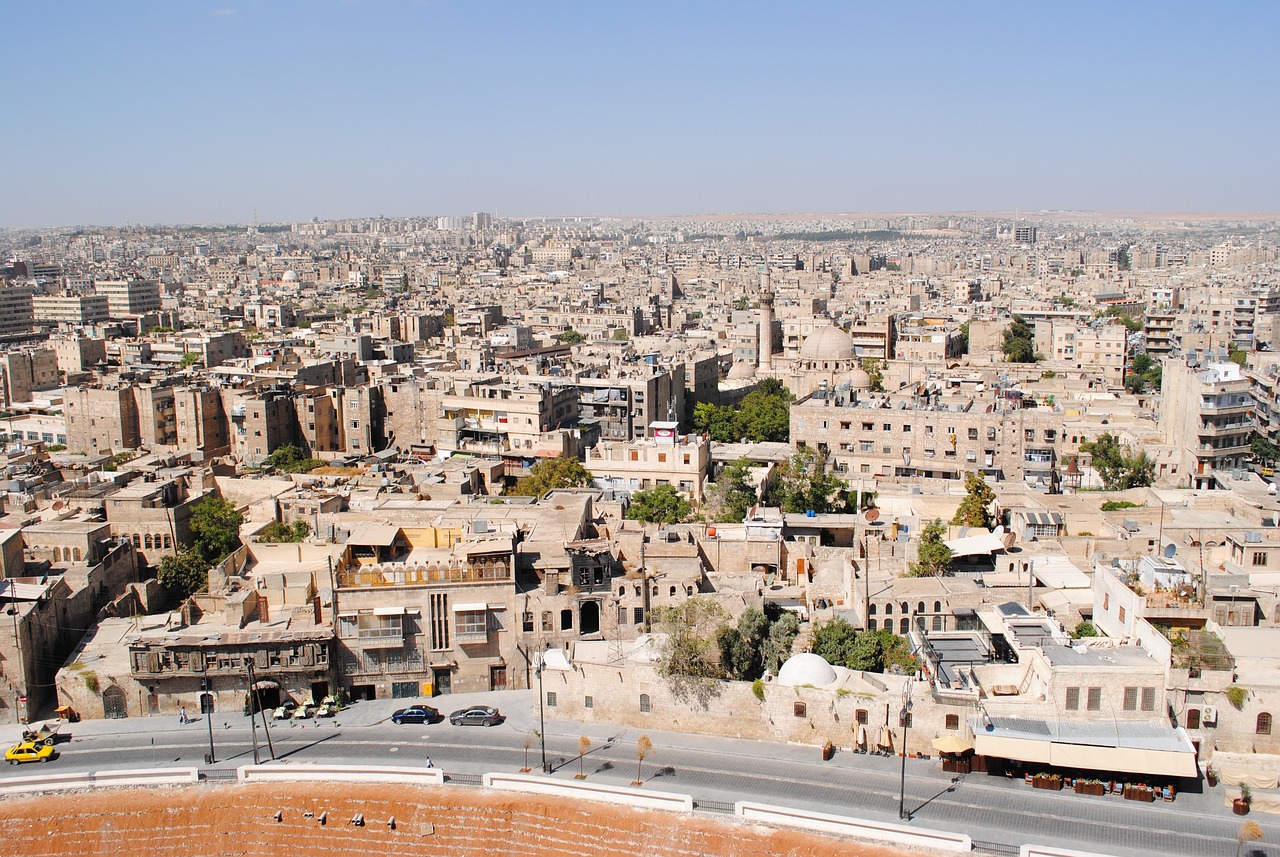
Damascus/New York/Washington: After taking control of Aleppo and its airport, the Hay’at Tahrir al-Sham (HTS) rebels have moved to Hama, the fourth largest Syrian city, as the latest spree of bloodshed has continued since November 27, 2024, in north-west Syria.
The rebels are close to Hama, where they were engaged in “violent confrontations” with the army, the Syrian state news agency Sana reported. The rebels claimed they were positioned about 6 miles from Hama city, and captured the towns of Maardis and Soran, which are situated north of Hama.
Humanitarian operations across parts of Aleppo, Idleb and Hama remain largely suspended due to security concerns. The humanitarian workers are unable to access relief facilities, including warehouses. This has led to severe disruptions in people’s ability to access life-saving assistance.
There are reports of civilian casualties, displacements of tens of thousands of people, damage to civilian infrastructure and interruption in essential services and humanitarian aid following the week-long fresh offensive launched in north-west Syria by the Hay’at Tahrir al-Sham, an entity subject to the United Nations Security Council sanctions.
Public health concerns are escalating, including due to the presence of unburied bodies and lack of drinking water. Aleppo University Hospital sustained damage that left hundreds of patients without essential care. At least 24 health centres in Idlib and Western Aleppo suspended operations due to hostilities. The main hospital in Idleb has also been affected.
A key water station for western Aleppo City remains inoperable, as maintenance teams cannot access the site due to ongoing security situations and hostilities. Schools have been closed in many areas, with at least 13 schools in north-west Syria damaged by hostilities over the past few days.
“All parties must protect civilians and civilian objects, including by allowing safe passage to civilians who are fleeing hostilities,” Stéphane Dujarric, Spokesman for the United Nations Secretary-General, said in New York. “The Secretary-General emphasizes the urgent need for all parties to seriously engage with Geir Pedersen, his Special Envoy for Syria, to chart a comprehensive path out of conflict in line with Security Council resolution 2254 (2015),” Dujarric added.
The UNSC resolution 2254 (2015) calls for a process facilitated by the United Nations where the Syrian regime and the opposition groups would negotiate a path forward for Syria. However, the Syrian Government has never participated in that process, and the US likens Syrian President Bashar al-Assad to a “brutal dictator” with the blood of his own people on his hands. “We continue to call on all countries to use their influence to push forward that kind of political process that would lead to a path forward for the Syrian people where the regime engages with opposition groups,” the US State Department Spokesperson Matthew Miller said in Washington.
It was eight years ago when Russian airstrikes helped the forces of the Syrian president, Bashar al-Assad, drive rebels from Aleppo bringing the country’s over a decade-long civil war largely to a state of stalemate since 2020. However, on November 27, 2024, Hay’at Tahrir al-Sham, along with a broad range of armed opposition factions, shifted front lines that had been static since 2020. They surprised forces loyal to Syrian President Bashar al-Assad and his allies, seizing control of a military base and 15 villages held by government forces in north-western Aleppo province.
HTS is a coalition of northern Syria-based Sunni Islamist insurgent groups that evolved from Jabhat al-Nusrah, or “Nusrah Front,” al-Qa’ida’s former branch in Syria. It primarily focuses on attacks against the Assad regime and seeks to replace it with a government guided by a fundamentalist interpretation of Islamic law. Its operating areas are northwest Syria (largely Idlib Province) and parts of Aleppo.
There are speculations that the HTS offensive could have been motivated by recent Russian and Syrian airstrikes against rebel areas likely as an intended precursor to a wider military campaign.
The United States today blamed Iran for continuing to fund and to arm and back attacks on the Syrian people – “something that they have done for some time, in the same way, that Russia has done”. While asking Iran to stop the destabilizing influence that it has inside Syria, the US State Department Spokesperson Matthew Miller said, “So, we want to see Iran’s destabilizing influence in Syria and in the broader region curtailed”.
Interestingly, many analysts in the area believe that Türkiye, which occupies anything between 11 per cent and 30 per cent of Syrian territory, harbours an ambition to annex Aleppo and Idlib. Turkish-controlled areas of Syria also comprise an 8,835-square-kilometre area that includes towns such as al-Bab, Azaz, Jarabulus, Rajo, Tal Abyad and Ras al-Ayn.
Days after the HTS offensive, the US Secretary of State Antony J. Blinken spoke with Turkish Foreign Minister Hakan Fidan on December 1, 2024, about the rapidly developing situation in Syria and the need for de-escalation and the protection of civilian lives and infrastructure in Aleppo and elsewhere. It may be mentioned that since August 24, 2016, when the Turkish Armed Forces began a direct military intervention in Syria by declaring Operation Euphrates Shield, mainly targeting the Islamic State of Iraq and the Levant (ISIL or ISIS).
Whether the US also urged Türkiye to pull out of Syria, the US State Department Spokesperson cryptically said in Washington, “I’m not going to get into private diplomatic conversations. Ultimately, we want to see a path forward for the Syrian people to determine the future of their country. No other country outside of Syria, no other country anywhere in the world – it is a question for the Syrian people and no one else”.
While the US is against the Assad regime, it supported the rebels in the past. However, Washington this time denounced Hay’at Tahrir al-Sham and pointed out that it is a terrorist organisation, designated as such by the US. “We certainly do not support that organization in any way, shape, or form. I know I’ve seen various rumours floating around – not just floating around social media, but, in some cases, claims made by people who ought to have the credibility that we were somewhere – somehow behind this offensive. That could not be further from the truth. It is false in every way, shape, or form,” Miller stressed. He sought to clarify, “There are groups that we have supported in the fight against ISIS in Syria…, and we continue to support that work to fight the growth of ISIS, to keep ISIS from re-emerging as a terrorist threat. But when it comes to the process inside Syria and a path forward for Syria, we want to see a de-escalatory path and we want to see a political process – a political path forward.”
The US imposed Caesar sanctions on Syria that need to be renewed on December 20, 2024, but Washington said it has no indication of a change in behaviour by the Assad regime to cut relations with Iran. “…we have seen a long history of the Assad regime refusing to engage in the processes outlined for it by the United Nations and continuing to commit violence against its own people, continue to engage with the Iranian regime that supports terrorism around the region. And so, because the Assad regime has not changed its behaviour, we have not changed our sanctions policy,” Miller said.
Earlier, the Governments of the United States of America, France, Germany, and the United Kingdom released a joint statement saying they were closely monitoring developments in Syria. They urged de-escalation by all parties and the protection of civilians and infrastructure to prevent further displacement and disruption of humanitarian access. “The current escalation only underscores the urgent need for a Syrian-led political solution to the conflict, in line with UNSCR 2254,” they stated.
As Syrians endure the conflict for nearly 14 years, Syria is already one of the world’s largest humanitarian crises, with 16.7 million people in need of assistance, and over 7 million people internally displaced. More than half a million people have also fled from Lebanon to Syria in recent weeks. Winter conditions will only make the needs in the coming weeks even more acute, the United Nations warned.
– global bihari bureau





